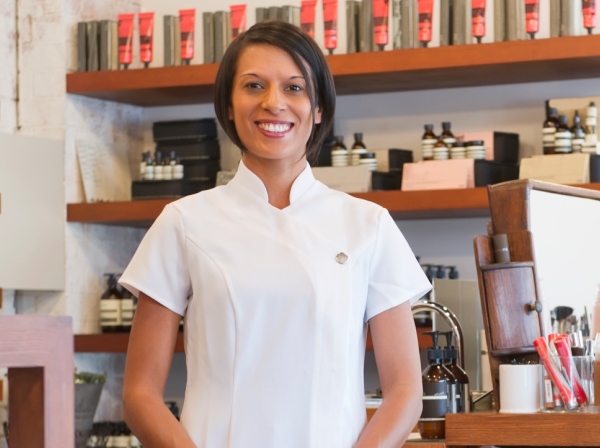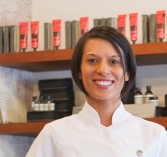
How do you identify each staff member’s unique driver and what incentives are available to salon staff to reward their efforts for the benefit of the business?
This was just one of five questions discussed at the second Professional Beauty Industry Roundtable, which focused on staff motivation.
Our eight industry supplier and salon owner experts – including Tina Copland from Jax Wax Australia, Kelly Dermody from Ivy Skin, Cameron Campbell from Marque of Brands, Stacey Manning from Malibu Spray, Roman Garai from Advanced Beauty Australia, Suzana Ruzinov from Swissotel Spa, Rory Houston from Linda Meredith Skincare and Gillian Adams from Gillian Adams Salon & Spa – discussed what tactics they had found effective in resulting ultimately in increased performance from their staff members.
Our thought leaders shared their insights on how to best drive staff loyalty and ensure employees were kept happy, healthy and motivated in the workplace.
Cameron said he was more concerned about loyalty than retention, while Roman said it was crucial to measure the re-booking ration.
Rory said it was sometimes better to let a staff member go, because “if they go loyal, sometimes they come back”, while Gillian said she provided flexible options for her staff, who “all feel like they’re part of the family”.
Tina said it was important to enable roles to change so a staff member can grow and flourish, while Stacey said you had to find out each employee’s unique driver.
Suzana likened her staff to her children that she praised but was also tough on them when she needed to be.
Read their edited responses below or watch the video for the full discussion.
Cameron:
“Retention and loyalty can mean two different things, and we’re not necessarily concerned about retention. Engaging your team to be part of something, and be loyal to the cause, is really driving passion. If someone’s loyal, they’re not going to leave anyway. People generally don’t leave the industry – once they’re in the beauty industry, they stay. What we sometimes find is they might outgrow our business, or we might outgrow them. So they move to a business where they can get to the next level in their career. As an industry, we want to drive that passion within people, from loyalty to what we do, but not necessarily retention, because I want people to learn and move between businesses.”
Roman:
“The re-booking ratio is a very good indicator of how the staff are performing. Salons should aim to be aiming to achieve 70 to 80 percent re-booking ratio, which is the industry benchmark. You also have to recognise when to let your staff members go. Don’t hold onto someone if they want to move on, and learn some other elements and aspects of beauty. What’s good for a salon is not necessarily good for the staff member. If you’ve given the staff member two years of good education and expertise, why not let them enrich their life and carry on with their career progression somewhere else?”
Rory:
“It’s sometimes better to let a staff member go, and if they go loyal, sometimes they come back. Sometimes they go somewhere else, grow, and they come back into the organisation bigger, and better and stronger. So if you get that loyalty right, you need to let them fly, in a way. Let them leave. And even if they don’t come back, one day they might pick up the phone and say, ‘I’ve got this amazing person that you need to meet.’ The value of having that ingrained throughout the industry of ex-employees, either in your spa or in your organisation, is priceless.”
Gillian:
“I’ve got a really strong team, who have been with me for anything from eight to 14 years. The great thing is they all feel like they’re part of the family. For me, the spa is not transitory; it’s very much where clients keep coming back. So it’s all about relationships. My staff love that they can come back and have the option of going part-time if they’ve had children. It’s important to build that culture, and that loyalty, for the young ones coming through. I pride myself on the fact that not many places have a full, occupied hair salon as well. To keep that as part of the spa experience is quite an achievement.
Tina:
“We don’t generally have staff turnover. I have staff that have been with us since day one, and what we find is we enable their role to change, so they can move through the business. I’ve now got people whose kids are coming doing their work experience with us, and working part-time when they are at university, which I find really rewarding.”
Stacey:
“Everyone has their own unique drivers, and it’s our job to get to know our staff really well, to find out what they are. Everyone wants to be recognised for doing a good job. You want that praise. I always try listening to my team, and then I praise them for what they’re doing. I have a staff member who is complete driven by praise – she loves it. Whereas I have someone else who’s strictly driven by the buck. So I do both; there’s praise, but I also give them rewards. How you treat your staff comes back tenfold.”
Suzana:
“I like to work with my team. I’m part of them. I listen, I help, and I communicate with them. The opportunity for personal development is there, or business development if a staff member would like to do more training. If my staff need anything, I’m there. They are like my kids. I look after them, and they appreciate it very much, and they are loyal. Loyal to the company and loyal to me. They’re like kids, you need to give to them, you need to be tough, and you need to praise them.”

